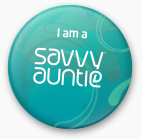With e-mail as a dominant form of communication, some of my business relationships are now almost completely virtual. This can pose difficulties simply because I don't see the person's face or hear their voice - important ways to read someone's mood and mind. It's just words on a screen, and those can be easy to misinterpret.
So I use these guidelines when I read e-mails:
1) I assume the other person has my best interests at heart. They want the relationship to continue and prosper, too. I assume that until they actually say otherwise. This is the ONLY assumption I allow myself.
2) If I realize I'm reacting negatively to something, there's a good chance it's triggering something in me that I need to look at. Maybe I didn't do something I was supposed to do, or perhaps I had higher expectations for the person, or just maybe they didn't do what I wanted them to do. So let me re-read the e-mail to pinpoint what it is I don't like, and then think about why that is so. My goal is to bring as little of my own baggage to the table when I respond. My goal is to RESPOND instead of react.
3) If I don't like something I've read, it's possible that I don't understand the other person's words, meaning and/or motivation, and I can ask about it. And I remember "restraint of tongue and pen" as very powerful tools for maintaining good relationships. Let me find out what is really going on by asking questions instead of making assumptions.
4) If I want to know more about anything, I can ask "tell me more about that." This includes picking up the telephone to have a conversation. Asking questions is much more powerful than making assumptions!
5) I remember the saying that I actively have to take offense. While someone may say something that is possibly offensive, I don't have to take the offense that may be offered. I don't have to rise to take the bait or engage in a possible fight. And most times, the person didn't know they were being offensive, so this saying has saved me many a time from my assumptions that someone means me harm. If I don't take offense, I am doing my part to preserve a relationship that may be important for a number of other reasons.
All these tips work in face-to-face life, also.
Tuesday, April 1, 2008
Subscribe to:
Post Comments (Atom)







No comments:
Post a Comment